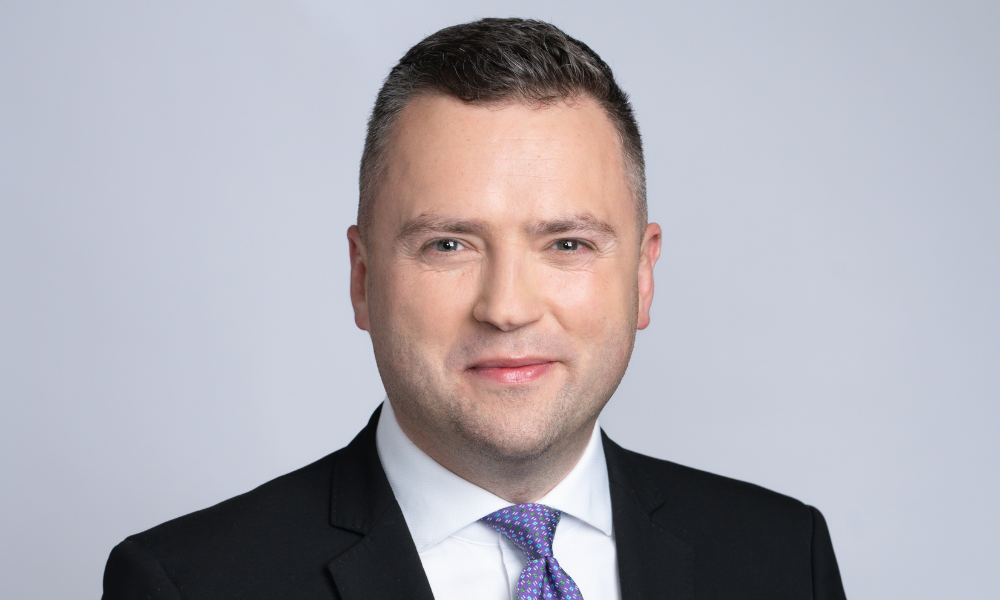
Beyond AI and expansion, Stein Monast doubles down on retaining top talent with flexible partnerships

Stein Monast LLP, a Quebec-based full-service law firm, recently announced that Pierre-Olivier Ménard Dumas has become the firm’s new managing partner.
Ménard Dumas’ top priorities, he says, will be expanding the firm’s presence beyond Quebec and accelerating AI adoption within its daily operations.
His predecessor grew headcount by 18 percent and revenue by 47 percent. Speaking with Canadian Lawyer, Ménard Dumas plans to maintain that momentum, which he says is “absolutely” replicable.
Founded in the 1950s, Stein Monast initially served clients solely in Quebec City before expanding across the province. The firm currently employs 75 lawyers across 17 practice areas. Now, Ménard Dumas says, it’s time to grow beyond the city.
Ménard Dumas says that Stein Monast made a deliberate decision long ago to maintain a unified office structure to foster strong collective values. However, he says that physical proximity is no longer a limitation – the firm can now expand and serve clients wherever its lawyers are licensed to practise, which he identifies as a key driver of future growth.
“I would definitely like to see [that] in the midterm future. I am a transportation lawyer, and my market is pretty saturated now… You want to have specialized attorneys that can go where the clients are.”
Ménard Dumas, who describes himself as a “bit of a geek,” says one of his priorities at the helm is improving internal efficiency through automation and AI tools.
Stein Monast already has a person dedicated full-time to process optimization and automation initiatives.
“Anything that can be optimized should be optimized,” he says.
He adds the firm is investing in a range of AI solutions, from chatbots and AI assistants to more sophisticated platforms for contract review, litigation, and translation.
He says the key to AI adoption is to build an integrated platform with tools that different lawyers or practices might need.
“It’s about building a toolbox – there’s not going to be one tool that fits them all.”
Ménard Dumas says the real challenge in the coming years will be maintaining close relationships with clients and developing a deep understanding of their businesses – not just providing legal advice but also offering commercially-minded guidance.
He believes AI will not jeopardize this connection if firms prioritize strong client relationships.
Ménard Dumas does not plan to downsize Stein Monast’s transport group but acknowledges that he will have to become more selective about the cases he handles as his management responsibilities grow.
Ten years ago, his transportation practice consisted of just himself, a legal assistant, and a paralegal; today, it includes 26 people. He describes the team as stable and cohesive and says he has no intention of downsizing.
While he acknowledges that his hands-on involvement in individual cases will inevitably decrease, Ménard Dumas says the group has been growing steadily for years.
About 90 percent of the group's work, he says, is already handled by junior lawyers and junior partners – a structure he plans to maintain. He anticipates dedicating less time to business development but stresses that client service and client relations will remain a priority.
Ménard Dumas describes Stein Monast’s partnership structure as flexible.
While it is not easy to become a partner, he says, the firm enables lawyers to achieve partnership sooner than many other firms, without strict minimums for billable hours or client origination. Partnership decisions are based on cultural fit, not hard thresholds, and every partner has one vote.
Looking ahead, Ménard Dumas says that flexibility will be key to talent retention. He notes that not every lawyer aspires to be a partner, but there is still significant value to offer.
With competition for talent intensifying, he says firms must be adaptable.
"If somebody is willing to work three days a week, we need to find a way to keep that person in our team if the culture fit is good," he says. He adds that maintaining a deep and stable bench of lawyers and staff is of utmost importance.
While AI presents exciting opportunities, Ménard Dumas says that it also raises questions about how to effectively train junior lawyers, particularly within a hybrid work environment.
He thinks hybrid work is here to stay because it benefits access to justice and cost efficiency. However, he adds that it also brings new responsibilities for law firms to actively maintain culture and mentorship.
"It should never be that you simply connect to a VPN with a logo," he says, “the firm must be more than that.” He believes protecting employees' well-being and professional growth is as important as protecting clients.
“If Stein Monast can successfully preserve its culture and support its people, everything else will follow.”